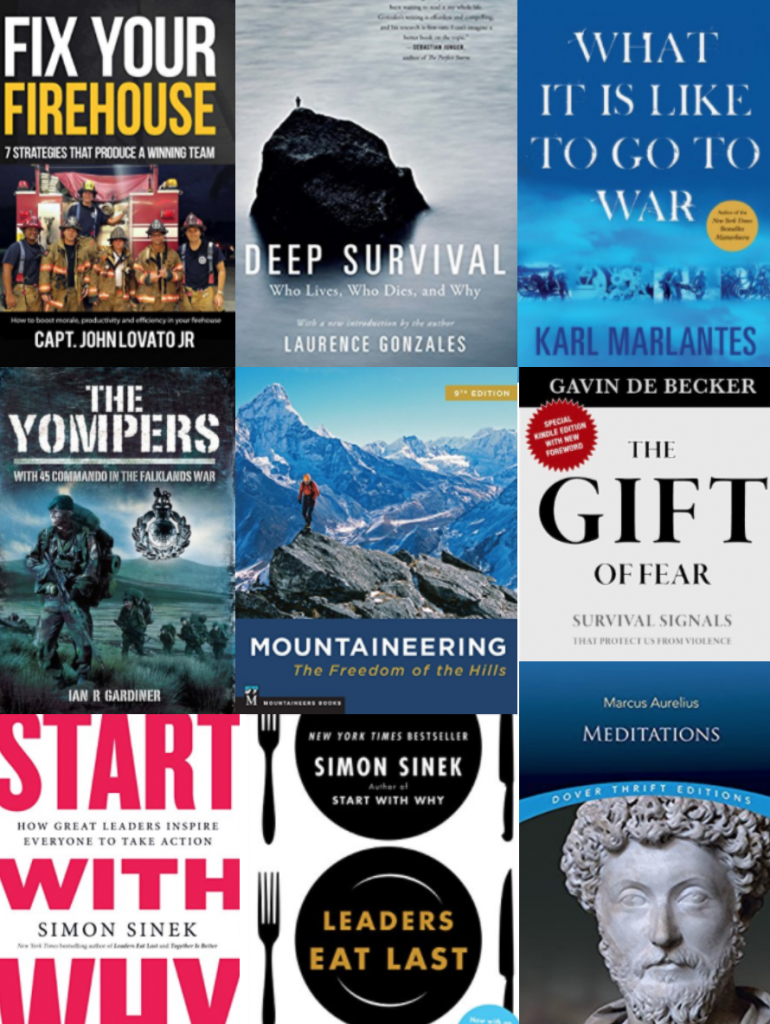
MTI SCRUM Participants, past and present, were asked for their current Top 3 Book recommendations for both, professional and personal reading. Their recommendations are below….
Joe Hogan, Fire Captain
Personal books
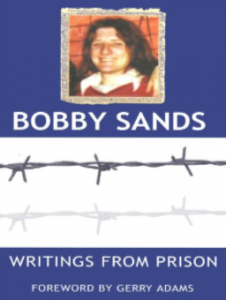 Bobby Sands: Writings from Prison, by Bobby Sands, M.P. This is a collection of writings smuggled from of the cell of political prisoner, Bobby Sands, during the years of the “Blanket Protest” and his eventual hunger strike to the death. I have been deeply influenced by the portrait on an indomitable will in the hands of a seemingly ordinary person. Sands’ devotion to his cause and his love for his comrades, in the face of horrific conditions and torture remind me that there is nothing stronger than the human spirit motivated by love. My personal takeaway from the book is summed in this quote, ” Nothing else seems to matter except that lingering constant reminding thought, ‘Never give up’. No matter how bad, how black, how painful, how heart-breaking, ‘Never give up’, ‘Never despair’, ‘Never lose hope’.”
Bobby Sands: Writings from Prison, by Bobby Sands, M.P. This is a collection of writings smuggled from of the cell of political prisoner, Bobby Sands, during the years of the “Blanket Protest” and his eventual hunger strike to the death. I have been deeply influenced by the portrait on an indomitable will in the hands of a seemingly ordinary person. Sands’ devotion to his cause and his love for his comrades, in the face of horrific conditions and torture remind me that there is nothing stronger than the human spirit motivated by love. My personal takeaway from the book is summed in this quote, ” Nothing else seems to matter except that lingering constant reminding thought, ‘Never give up’. No matter how bad, how black, how painful, how heart-breaking, ‘Never give up’, ‘Never despair’, ‘Never lose hope’.”
Francis: The Journey and the Dream, by Murray Bodo, O.F.M. This is a somewhat poetic recounting of the life of Saint Francis of Assisi. I’ve found it to be the most personally relatable work on Francis. It brought to life for me the joy he uncovered in a life of radical poverty, humility, and sacrifice. It has motivated me to seek out simplicity and to find enjoyment and strength in reducing myself and building others.
The Grapes of Wrath, by John Stienbeck This is admittedly an unoriginal choice. While I am a huge fan of Stienbeck’s literary style (and this is arguably his best work), I chose this because of the themes. The value and nobility of the “common man” is something that is too often ignored. Reading this as a young man, and repeatedly as I’ve aged, has encouraged empathy and an admiration for those society ignores.
Professional Books
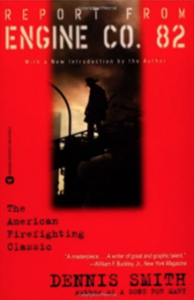 Report from Engine Co. 82, by Dennis Smith A chronicle of a year in the life of the busiest FDNY engine during the “war years” in the South Bronx. The book details the daily grind encountered by firefighters working some of the heaviest fire duty in the history of the fire service while also encountering some of the most crushing urban poverty in American history. Smith highlights the absolute commitment these men had to one another in unvarnished terms as well as sharing his own vulnerable thoughts and fears. I’ve not only seen this as am important legacy for all firefighters but also as a practical insight into loyalty, commitment and leadership under fire. As silly as it sounds, I’ve often asked myself how Engine Co. 82 might handle a given situation and tried to act accordingly.
Report from Engine Co. 82, by Dennis Smith A chronicle of a year in the life of the busiest FDNY engine during the “war years” in the South Bronx. The book details the daily grind encountered by firefighters working some of the heaviest fire duty in the history of the fire service while also encountering some of the most crushing urban poverty in American history. Smith highlights the absolute commitment these men had to one another in unvarnished terms as well as sharing his own vulnerable thoughts and fears. I’ve not only seen this as am important legacy for all firefighters but also as a practical insight into loyalty, commitment and leadership under fire. As silly as it sounds, I’ve often asked myself how Engine Co. 82 might handle a given situation and tried to act accordingly.
3,000 Degrees, by Sean Flynn In a style similar to Sebastian Junger’s, Sean Flynn examines the landmark Worchester Cold Storage fire, which killed six firefighters. In doing so, he not only walks you through the tactics employed that night but he delves deeply into the lives of the fallen firefighters and some of the pivotal survivors. I find the experiences of the Worchester FD to be more relatable to my own department than FDNY in the 1970’s. The backstories of the men and their families remind me of the people who surround me at work and the events of that night could easily happen where I work. It has caused me to constantly evaluate my own readiness and to fear complacency above all things.
Battling Buzzards, by Gerald Ast This is the story for the 517th Parachute Infantry Combat Team, from their formation early in WWII, through multiple campaigns in Europe and eventually home. This is of particular interest to me because this was my grandfather’s outfit and he was my greatest role model. The book examines how this high speed unit was built and lead from the ground up. It provides tremendous insight into leadership and training. For example, the officers and senior NCO’s of the 517th were expected to lead in areas of basic soldiering such PT, marksmanship before being trusted with positions of command. They were also expected to be deeply involved in combat operations. I’ve tried hard to emulate this, “never ask a man to do that which you cannot or will not do yourself” style in my career.
Jacob McQuaid, Firefighter
Personal books
 Extreme Ownership; Willink, Jocko and Babin, Leif This book is also in my professional list and I chose this particular title because of how the authors are able to apply lessons learned in an austere environment to daily living as well as into the professional realm, career and inter and intra-personal relationships. The simplicity of holding oneself accountable for preparation, success, failure, adaptability, and correction is essential for, in my opinion, holistic success.
Extreme Ownership; Willink, Jocko and Babin, Leif This book is also in my professional list and I chose this particular title because of how the authors are able to apply lessons learned in an austere environment to daily living as well as into the professional realm, career and inter and intra-personal relationships. The simplicity of holding oneself accountable for preparation, success, failure, adaptability, and correction is essential for, in my opinion, holistic success.
Stealing Fire: How Silicon Valley, the Navy Seals, and Maverick Scientists are Revolutionizing the Way We Live and Work; Kotler, Steven and Wheal, Jamie I heard about this book from two podcasts that I subscribe. The authors were interviewed and the thoughts and direction of their research is in alignment with my personal interests. The premise of the book is how organizations create physical, mental and emotional states in order to achieve outcomes; such as learning a new language, creating and solving mathematical and scientific proofs, technical innovation that in early human development and cultures have taken decades to achieve. The methods used range from brain wave stimulation to extreme sensory deprivation or sensory overloads. One question that is not brought up and I have about this process is what is the long term effect of “hacking” these systems to achieve a short term goal. A question that is never really addressed in the book or in the interviews that I have heard.
Little Toy Dog; White, William I read this book when I was in 7th or 8th grade. My father is career Air Force and his job while I was growing up was an air crewman on an RC-135 as a signals analyst. I remember asking him what he did at work all the time. My friends dads were in the military too and they were pilots, military police, or chaplains. All job descriptors that you knew what they did. I didn’t know, and moving all the time as the new kid I was always asked by teachers “What does your dad do?” and “I don’t know” was my standard reply. My father let me borrow his copy of this book and told me that this book and the Cardinal of the Kremlin by Tom Clancy would answer some of those questions. Little Toy Dog is about an aircrew aboard an RB-47 who were shot down by Soviet aircraft in 1960 and the two survivors, Capts. McKone and Olmstead, were held captive and charged with espionage by the Soviet government. The book hints at and gives some information about the mission profile of this aircraft and the aircrews on board. Not long after this incident took place, the RC-135 class of aircraft were commissioned and continued these types of missions. This book is important to me because it allowed my father and I to strengthen our relationship because I had an idea of what he did, but more importantly why he did it.
Professional Books
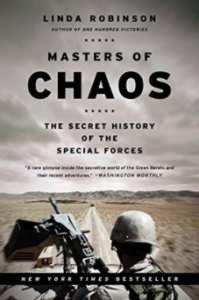 Extreme Ownership; Willink, Jocko and Babin, Leif I was introduced to this book by a fellow fighter on my crew. At the time we were having personal and professional challenges with our Engine Captain and we asked if as a crew we could read this book and begin to apply the lessons presented on our crew. Myself and the other firefighter believed in and still use the principles discussed in the book and I can say they have given me a framework and definition for how I feel about leadership and a practical way to implement them.
Extreme Ownership; Willink, Jocko and Babin, Leif I was introduced to this book by a fellow fighter on my crew. At the time we were having personal and professional challenges with our Engine Captain and we asked if as a crew we could read this book and begin to apply the lessons presented on our crew. Myself and the other firefighter believed in and still use the principles discussed in the book and I can say they have given me a framework and definition for how I feel about leadership and a practical way to implement them.
Masters of Chaos: Secret History of the Special Forces; Robinson, Linda When I was a teacher, I would mentor students from Northern Arizona University during their student teaching experience. I would give this book as a reading assignment. I taught History and Social Studies and the lessons learned from the ODA’s in the early part of the Iraq and Afghanistan campaigns had parallels in both the American Civil War and other engagements of counter-insurgency units throughout history which affected large powerful countries even to this day. It also was a way to show them that audacity and thinking outside of the box to create positive change and success was sometimes a hard choice to make. It was the right way, not the easy way and that during their careers in the field of education they would have to make those choices at some point.
Focus: Elevating the Essentials; Schmoker, Mike, EdD This book teaches a way to dissect text to truly understand the author’s intent as well as create a template for reading for deep understanding and logical argument. Dr. Schmoker mentored me as a teacher and I used his technique for many years to help students get below the surface of historical documents, advertising, and other texts that we used in the class.
James Easton, Australian Army Officer
Personal books
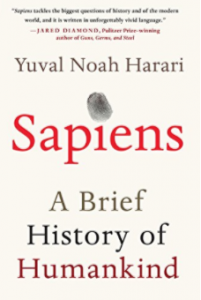 Sapiens – Yuval Nohari I recently read this book and it has massively changed the way I perceive many things in my life. It is essentially a world history book that impartially discusses the existence of Homo Sapiens and how we have come to our current state. The biggest influence this book had on me was its impartiality and objective look at what are fundamentally subjective issues. It has made me reconsider how I interact with the world, in particular consumerist habits and constant wanting for things, and it has driven me to understand the variance in world outlooks.
Sapiens – Yuval Nohari I recently read this book and it has massively changed the way I perceive many things in my life. It is essentially a world history book that impartially discusses the existence of Homo Sapiens and how we have come to our current state. The biggest influence this book had on me was its impartiality and objective look at what are fundamentally subjective issues. It has made me reconsider how I interact with the world, in particular consumerist habits and constant wanting for things, and it has driven me to understand the variance in world outlooks.
Man’s Search for Meaning – Viktor Frankl I didn’t really consider understanding the why of life until reading this book. After reading this book searching for meaning was placed center stage in most of my actions and continues to do so. Frankl’s discussion of how meaning influences our existence drives you to seek out and truly understand your why. Through his own experiences in the Holocaust he demonstrates just how fundamental meaning is to our ability to persevere through suffering and our overall resilience. It is amazing to read through the stories that illustrate his point and was impossible for me not to reshape my own way of thinking to constantly reassess meaning in my life and stop wasting time with things that did not contribute to my subjective meaning.
Reach for the Sky – Douglas Bader For me this is one of the greatest stories of resilience and I have regularly returned to it since reading it 14 years ago. After losing his legs in a plane crash, Douglas Bader was one of the most influential pilots during the Battle of Britain before being shot down, captured and imprisoned by the Germans during WWII. It is tremendous to me how willingly Bader took up challenges after the trauma of losing his legs. Although, one of the big lessons is that it was not immediate. For some time following his survival he struggled to find himself but eventually did and the post-traumatic growth experienced provides an exceptional example for how, despite horrific incidents, we search out and execute things we love within the restrictions life has dumped upon us.
Professional Books
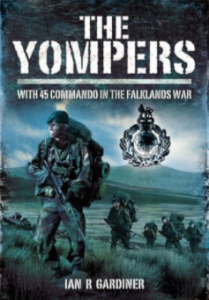 The Mission, the Men, and Me – Pete Blaber I found this book amazingly easy to devour but it has really established the base for my approach in not only work but all aspects of life. Weaving insights and advice through anecdotes there is so much to take away from this book. For me it there are two significant insights. Firstly, the title of the book explains the mindset reinforced throughout and one that I continually strive to pursue and drive. Identifying what the mission is in all aspects of life and making that the focus, supporting others towards that goal, and maintaining myself in order to be able to complete those first two steps is an instrumental process in leading and commanding. Secondly, the process of saturation, incubation and illumination in both learning and executing has helped me to prevent immediately rushing into decisions or becoming frustrated with my own development. Overall, I find myself consistently referring to the lessons from this book and considering them in my approach to my professional life.
The Mission, the Men, and Me – Pete Blaber I found this book amazingly easy to devour but it has really established the base for my approach in not only work but all aspects of life. Weaving insights and advice through anecdotes there is so much to take away from this book. For me it there are two significant insights. Firstly, the title of the book explains the mindset reinforced throughout and one that I continually strive to pursue and drive. Identifying what the mission is in all aspects of life and making that the focus, supporting others towards that goal, and maintaining myself in order to be able to complete those first two steps is an instrumental process in leading and commanding. Secondly, the process of saturation, incubation and illumination in both learning and executing has helped me to prevent immediately rushing into decisions or becoming frustrated with my own development. Overall, I find myself consistently referring to the lessons from this book and considering them in my approach to my professional life.
In Good Company – Gary McKay A memoir of an Australian platoon commander in Vietnam that stands out to me for a number of reasons. Perhaps the biggest insight that I took from this is the complexities of managing the relationship between superiors and subordinates. McKay provides anecdotes of regular disagreements with his Company Commander and discusses how he managed to balance appeasing his superiors with ensuring he did what was right by his subordinates. For me it reinforced the challenge of command in that on occasion despite your best efforts and intentions you must tow the party line and on others it would be abhorrent to do so. Another insight I took from this books various anecdotes was the requirement for innovation and how the acceptance of risk is essential to enable developments to flourish.
The Yompers – Ian Gardiner “Fortune favours the professional.” Repeatedly throughout this book Ian Gardiner, a Royal Marines Commando Company Commander during the Falklands War and retired Brigadier, refers to this adage and demonstrates how the professionalism of the British forces, in particular his unit 45 Commando, enabled success. Gardiner also discusses the reason, or at least his reasoning, behind the fighting in the Falklands and demonstrates how he strived to disseminate this among his soldiers. Contemplating on his phrase, ‘fortune favours the professional’, has really driven me in my work to instill the pursuit of excellence not only within myself but within my team(s). Equally, Gardiner’s drive to give meaning to his conflict reinforced to me the necessity to understand the purpose of our actions and this is closely linked, for me, to the pursuit of meaning in our lives.
Jason Ford, Fire Captain
Personal Books
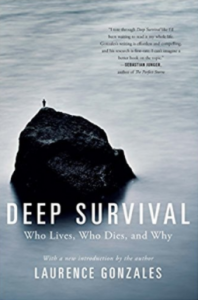 Lonesome Dove by Larry McMurtry The greatest book ever written. Gus and Woodrow are a great picture of male friendship, at least for me. The two men are constantly giving each other a hard time, one upping one another, and overall just sharpening one another. They lead a cattle drive from South Texas to Montana with a rag tag crew of cowboys fighting Indians, the weather, the land, and each other. I’ve heard others say Lonesome Dove is just a book about a cattle drive, but that would sell it severely short. McMurtry wrote a book that helps you better understand yourself and others. It is almost comical how I’ve met some version of every character in this book in my personal life.
Lonesome Dove by Larry McMurtry The greatest book ever written. Gus and Woodrow are a great picture of male friendship, at least for me. The two men are constantly giving each other a hard time, one upping one another, and overall just sharpening one another. They lead a cattle drive from South Texas to Montana with a rag tag crew of cowboys fighting Indians, the weather, the land, and each other. I’ve heard others say Lonesome Dove is just a book about a cattle drive, but that would sell it severely short. McMurtry wrote a book that helps you better understand yourself and others. It is almost comical how I’ve met some version of every character in this book in my personal life.
Tribe by Sebastian Junger This book does a great job of explaining our need for community. The central theory is that we as humans are meant to live in small groups/tribes in which everyone is necessary for the survival of the group/tribe. For those of us who have served in the military or work in small units (fire service and LE immediately come to mind), this way of life is the norm. Junger posits that we all should seek to live this way, and I wholeheartedly agree.
Deep Survival by Laurence Gonzales One of the few books I have read multiple times. Understanding our response to stressful situations is key to developing an appropriate plan of attack. Gonzales does a great job of explaining “Chaos Theory” as it applies to humans in difficult circumstances. The individual’s ability to detach and properly assess the situation, then make a decision based upon what is actually occurring prevents the chaos from becoming so great that it can’t be overcome. Learning how to manage chaos has changed my approach to every situation in my professional and day-to-day life. There a ton of little nuggets in this book for people that engage in high consequence occupations and hobbies.
Professional Books
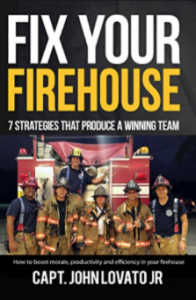 Extreme Ownership by Jocko Willink and Leif Babin Easily the best leadership book that I’ve read. Jocko and Leif break down leadership into simple concepts that any knuckle dragger can employ. They don’t spend time in minutiae of theory, instead keeping simple decisions simple. Jocko’s mantra of “Discipline equals freedom” is a great example. Having the discipline to train every day in fire ground tasks/tactics translates to my crew having a high degree of effectiveness on scene. They move much faster with many tasks being completed almost automatically because of doing and seeing them in advance. All of the principles are to the point and easily actionable.
Extreme Ownership by Jocko Willink and Leif Babin Easily the best leadership book that I’ve read. Jocko and Leif break down leadership into simple concepts that any knuckle dragger can employ. They don’t spend time in minutiae of theory, instead keeping simple decisions simple. Jocko’s mantra of “Discipline equals freedom” is a great example. Having the discipline to train every day in fire ground tasks/tactics translates to my crew having a high degree of effectiveness on scene. They move much faster with many tasks being completed almost automatically because of doing and seeing them in advance. All of the principles are to the point and easily actionable.
Fix Your Firehouse by Captain John Lovato It is a short read but much like Extreme Ownership, it has straight to the point principles. John is a sharp guy that comes off as a guy I would like to work for. His book has a great deal of detail for long term planning down to the day-to-day operations of your company. I have employed a few of his concepts, the one that sticks out the most is a pre-tour e-mail to each crew member. Before we leave for our 5 days off, I’ll send an e-mail out to the crew outlining what we’ll be working on next tour, special events, paperwork, continuing education, and a request for feedback. It took a couple of tours for this to take but my guys expect it now and do a great job with feedback and training ideas.
Leadership and Training for the Fight by Paul Howe Howe’s book is geared more for military and LE types but I was able to add to my toolbox by reading it. Howe is a special forces veteran and runs a high speed tactical training school up in East Texas. To say he knows his stuff is an understatement. In the book he explains his preparation for a mission by carrying a “layered offense.” The layered offense starts with his rifle (cleanliness, operability, etc.) and sufficient ammunition. Following this is grenades of assorted varieties. Next is his side arm, including sufficient ammunition and accessibility. Following this is his knife, then flashlight, then his final layer of offense being hand-to-hand combat skills. The concept applies to the fire service fairly well. On every fire call I wear my entire personal protective ensemble to include an SCBA. In my pockets I have carry a respirator in case I have an SCBA malfunction or run out of air, window punch, and nylon webbing for emergency escape. We should all avoid being so rigid to think we can only learn from those in our own profession.
Ben Higginbothom, Retired Army Officer
Personal books
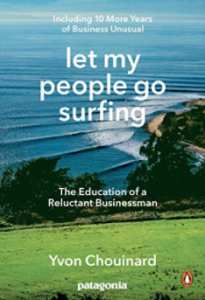 Let My People Go Surfing, by Yvon Chouinard Chouinard founded Patagonia , and his book on the lessons he learned as a “reluctant businessman” are invaluable for you no matter your line of work. There’s a lot in here about succeeding in business, and about humble, quiet professionalism and servant leadership.
Let My People Go Surfing, by Yvon Chouinard Chouinard founded Patagonia , and his book on the lessons he learned as a “reluctant businessman” are invaluable for you no matter your line of work. There’s a lot in here about succeeding in business, and about humble, quiet professionalism and servant leadership.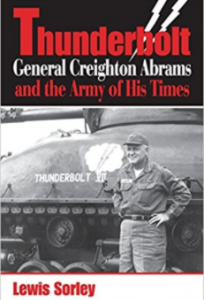 Thunderbolt: General Creighton Abrams and the Army of His Times, by Lewis Sorley One of the best books on a combat leader that I’ ve ever read. This book and Abrams’ life and example (Patton called him the “world champion” in terms of leadership) had an impact on me throughout my military career. He was promoted to Lieutenant Colonel before he turned 28, and commanded the tank battalion that relieved Bastogne during the Battle of the Bulge. He was “reverted” back in rank after WWII, and worked his way back up through the levels of command to lead MAC V in Vietnam, and ultimately to be the Chief of Staff of the US Army.
Thunderbolt: General Creighton Abrams and the Army of His Times, by Lewis Sorley One of the best books on a combat leader that I’ ve ever read. This book and Abrams’ life and example (Patton called him the “world champion” in terms of leadership) had an impact on me throughout my military career. He was promoted to Lieutenant Colonel before he turned 28, and commanded the tank battalion that relieved Bastogne during the Battle of the Bulge. He was “reverted” back in rank after WWII, and worked his way back up through the levels of command to lead MAC V in Vietnam, and ultimately to be the Chief of Staff of the US Army.Gods and Generals, and The Last Full Measure, by Jeff Shaara, and The Killer Angels, by Michael Shaara. Michael Shaara wrote one of the classic historical novels on Americans at war, and on leadership. His son, Jeff, picked up where he left off and wrote both a pr equel and a sequel that seem to have been written by the same author as the original. Even though I know how the story turns out, I learn new things about leadership every time I read these books.
Mike Avey, US Army Officer
Personal books
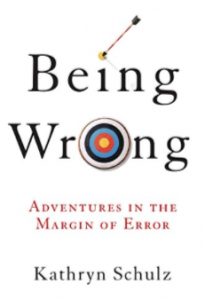 The Armed Forces Officer – United States Department of Defense This is actually an old Department of the Army Pamphlet, DA PAM 600-2. I would recommend this book for any leader, especially those in the military. This is a collection of short essays and passages that really highlight the human aspect and the endeavor of leading a complex organization that is not just a collection of machines, processes, and regulations. This book really makes you think about leadership and why we as leaders do what we do. It is a gentle reminder that we are part of a larger organization and that we are selfless leaders, not in it for a reward. Reflecting back on this book from time to time keeps me grounded and reminds me why I do what I do.
The Armed Forces Officer – United States Department of Defense This is actually an old Department of the Army Pamphlet, DA PAM 600-2. I would recommend this book for any leader, especially those in the military. This is a collection of short essays and passages that really highlight the human aspect and the endeavor of leading a complex organization that is not just a collection of machines, processes, and regulations. This book really makes you think about leadership and why we as leaders do what we do. It is a gentle reminder that we are part of a larger organization and that we are selfless leaders, not in it for a reward. Reflecting back on this book from time to time keeps me grounded and reminds me why I do what I do.
How to Lie with Statistics – Darrell Huff & Damned Lies and Statistics – Joel Best This is actually two books, but they are short and go together very well. Since reading these books, I look at everything more critically now, especially if there is a number or statistic involved. There is so much bias in the media and numbers are thrown around to make you believe something that is not always true. These books do a great job at helping dissect arguments with numbers to ensure you are consuming the right information, not necessarily what the author intended for you to understand.
Being Wrong: Adventures in the Margin of Error – Kathryn Schulz There is a certain infallibility of rightness, especially in hierarchical organizations. It is easier to admit you are wrong on trivial matters than on important ones. When we are wrong, it gets catalogued in our brain as an experience, not as “wrong”. This book explains why we always feel the need to be right and why it is completely acceptable to be wrong. The author highlights the reasons why we think we are always right and the reasons why and how we think others are wrong. This book has helped me to look at situations through different lenses and with more compassion and understanding for other’s points of view.
Professional Books
 The Mission, the Men, and Me – Pete Blaber Super easy read – a must read for all leaders. In an era of technology and real-time information, this book portrays a level of trust between leaders and subordinates to develop the situation further, and not be a slave to the higher headquarters that is always seeking answers. Several other lessons abound in this book on leadership, management, and teamwork. The main take-away for me is to let your subordinates on the ground deal with the situation and trust them. Abiding by this principle has paid off in Afghanistan on several occasions where I allowed the leaders on the ground to make decisions and not micro-manage them from a distance. This led to timely and effective mission accomplishment and a strong senior-subordinate relationship based on trust.
The Mission, the Men, and Me – Pete Blaber Super easy read – a must read for all leaders. In an era of technology and real-time information, this book portrays a level of trust between leaders and subordinates to develop the situation further, and not be a slave to the higher headquarters that is always seeking answers. Several other lessons abound in this book on leadership, management, and teamwork. The main take-away for me is to let your subordinates on the ground deal with the situation and trust them. Abiding by this principle has paid off in Afghanistan on several occasions where I allowed the leaders on the ground to make decisions and not micro-manage them from a distance. This led to timely and effective mission accomplishment and a strong senior-subordinate relationship based on trust.
On Killing: The Psychological Cost of Learning to Kill in War and Society – Dave Grossman Hands down a must for any combat leader, law enforcement officer, and those who train them. Killing someone is not a natural human response, unless there is a present threat. Even then, it is difficult to take another life. This book explains how and why those who experience extreme violence have issues, but more importantly how to condition those same people to deal with the outcomes of violence in a healthy way. My big take-away from this book was how to train Soldiers to be aggressive in combat and prepare them to deal with the psychological effects of having to take another human life prior to multiple deployments.
Leaders Eat Last: Why Some Teams Pull Together and Some Don’t – Simon Sinek I really enjoyed reading this book. The messages about building teams and fostering healthy competition are timeless. Going behind the psychology of teams and why some individuals perform and others don’t is extremely helpful when leading an organization and the diverse people inside it. Not only dealing with the people, but the changes in the organization as it relates to the business climate are fascinating and how the organization changes is important to success. This has furthered my understanding that people are the foundation of any organization and if you take care of the people, they will take care of you and the organization will be successful. This book gives some good examples of how to get more out of people and understand why people act the way that they do in certain situations.
J.W., Federal LE
Both Personal & Professional books
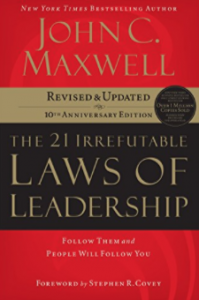 The Bible: people have (and some continue to) die for this book and what it represents. Governments have banned it, society has scorned it and those that follow its teachings. Its message transcends time, race, culture, and socioeconomic boundaries as it remains the most popular book of all time. While often misunderstood and at times misappropriated, its message offers hope and guidance and warrants a lifetime of study. I am a confessed (and moving company verified) bibliophile so the remaining slots are tough but here is my best effort.
The Bible: people have (and some continue to) die for this book and what it represents. Governments have banned it, society has scorned it and those that follow its teachings. Its message transcends time, race, culture, and socioeconomic boundaries as it remains the most popular book of all time. While often misunderstood and at times misappropriated, its message offers hope and guidance and warrants a lifetime of study. I am a confessed (and moving company verified) bibliophile so the remaining slots are tough but here is my best effort.
21 Irrefutable Laws of Leadership by John Maxwell: I have seen his material everywhere from team rooms to board rooms – bite sized chunks of truth that can be implemented immediately
Start with Why by Simon Sinek: I think SS may have cracked the code to improved communication with a younger generation of co workers. (also Leaders Eat Last);
5 Love Languages by Dr. Gary Chapman (sage advice on probably the most important relationship you will have in your life. (PBS had a great special highlighting the topic)
Reason for God by Tim Keller: Thought provoking book focusing on relationship as opposed to religion or ritual.
Drew Hammond, Tactical Strength & Conditioning Coach
Personal books
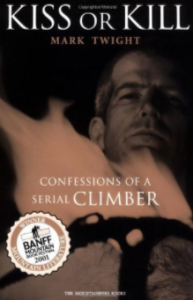 Sapiens–not really anything related to performance/strength and conditioning/tactical training here, more of a broad overview of the “story of humanity” and how we all interact with and around each other. Maybe it was because I primarily read this book while in airports and on flights, but it definitely gave me an interesting optic through which to view the people and ideas around me.
Sapiens–not really anything related to performance/strength and conditioning/tactical training here, more of a broad overview of the “story of humanity” and how we all interact with and around each other. Maybe it was because I primarily read this book while in airports and on flights, but it definitely gave me an interesting optic through which to view the people and ideas around me.
Tools of Titans and Tribe of Mentors–I put these together because they’re similar books…and when combined give you about 800 pages of life advice. I’m a big fan of Tim Ferriss’ material and the ways in which he distilled lessons learned from thought leaders and subject matter experts was fantastic. The amount of tangible information you’re able to pull and apply from these pages is second to none.
Kiss or Kill: Confessions of a Serial Climber–If you’ve read any of Mark Twight’s stuff before, you’ll understand how cerebral he can get with his material. That aside, as someone who works alongside tactical type-A dudes that are always probing for weaknesses, this book gave me a great perspective. From both a personal and professional perspective, the ability to not only maintain confidence within yourself and your abilities BUT also know when to back down and when to readdress a challenge is paramount. This book does a great job of expressing those situations from the vantage point of alpine climbing.
Professional Books
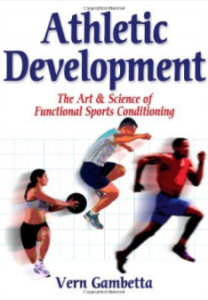 Training for the New Alpinism–as a tactical strength coach dealing with PJs working in austere environments, I found this text to be the most applicable to the spaces within which my guys need to operate. Instead of simply providing tables and research relating to reps and sets, House and Johnston do an excellent job of examining the entire athlete and use stories and anecdotes to convey the applicability of their training methods.
Training for the New Alpinism–as a tactical strength coach dealing with PJs working in austere environments, I found this text to be the most applicable to the spaces within which my guys need to operate. Instead of simply providing tables and research relating to reps and sets, House and Johnston do an excellent job of examining the entire athlete and use stories and anecdotes to convey the applicability of their training methods.
Athletic Development: The Art and Science of Functional Sports Conditioning–Rob actually recommended this one to me at our Scrum. “Functional Fitness” is a bit of a buzz word in our world, but very few professionals have really grasped what exactly that means. Gambetta’s unique approach (a lot of this book is written in first person) as well as actual examples from athletes he’s trained not only made this book easy to read but also easy to apply to the training that I give my guys.
-Any Milo Strength magazine–I probably cheated here by being a bit vague, but that being said, Milo magazine is probably the de facto text for old school strength and conditioning training. In the age of social media and instagram athletes, it’s very easy to get trick by gimmicks, fads, and stupid movements. For some reason (and maybe it’s me), reading these issues every month helps to bring me back to the fundamentals and helps me keep my programming in check.
Danny Dumas, Firefighter
Personal books
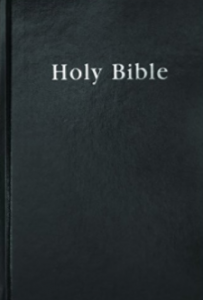 The Five Love Languages, this book really improved my relationship with my wife and most other people I have come in contact with. It helped me see that what I think is the right thing to do can be the completely wrong thing to the wrong person. It has made relationships easier and really explains that most of the conflict I experience are not due to a total differences of opinion it’s more than likely a difference in communication.
The Five Love Languages, this book really improved my relationship with my wife and most other people I have come in contact with. It helped me see that what I think is the right thing to do can be the completely wrong thing to the wrong person. It has made relationships easier and really explains that most of the conflict I experience are not due to a total differences of opinion it’s more than likely a difference in communication.
The Count of Monte Cristo, It is just such an epic story of tragedy and purpose and revenge and forgiveness. It paints a great picture of how the world can be a fickle place.
The Bible, I think it’s important to have a baseline for making decisions. This is my baseline. I think it speaks for itself.
Professional Books
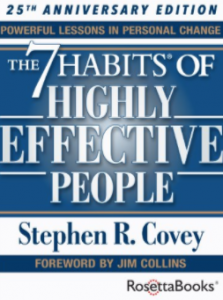 Extreme Ownership, Jacko Willink, The idea is simple if you want to do great things take responsibility for everything in your control. Is your boss an idiot, figure out how to make it work despite him. The guys you are in charge of don’t know what they’re doing after 100s of hours of training, train 100 more hours, or change the way you are training, make things work. I had fell into the trap of having some senior leaders that are terrible at their job, causing extremely dangerous things to happen and I just sat there and made a point to keep track of all the dumb decisions they made. This book changed the way I think, I now dont care if my leaders are idiots or geniuses I am going to make it successful I have extreme ownership
Extreme Ownership, Jacko Willink, The idea is simple if you want to do great things take responsibility for everything in your control. Is your boss an idiot, figure out how to make it work despite him. The guys you are in charge of don’t know what they’re doing after 100s of hours of training, train 100 more hours, or change the way you are training, make things work. I had fell into the trap of having some senior leaders that are terrible at their job, causing extremely dangerous things to happen and I just sat there and made a point to keep track of all the dumb decisions they made. This book changed the way I think, I now dont care if my leaders are idiots or geniuses I am going to make it successful I have extreme ownership
On Killing and On Combat I really see these are to volumes of the same book. These books opened my eyes to the potential training scars I was creating. It helped my understand some mistakes I had made because I had failed to control my stress level. It is helping an entire district of firefighters to train closer to reality and be prepared for the worst day with the best training we can come up with.
7 Habits of Highly Effective People. If your job involves dealing with more than one other person and you have any type time constraints this is a must read. It is a bunch of real advice on getting things done and understanding others.
Brad Kramer, US Marine Officer
Personal books
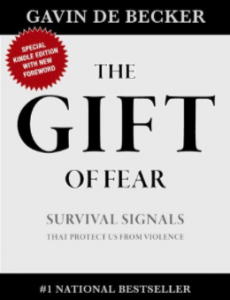 The Gift of Fear by Gavin deBecker– this was recommended by an LE instructor at a tracking and heuristics class I attended. Turns out it’s a great read about human behavior as it relates to interpersonal violence. It’s changed the way I look at the world and given me something to talk about with all the people in my life I care about.
The Gift of Fear by Gavin deBecker– this was recommended by an LE instructor at a tracking and heuristics class I attended. Turns out it’s a great read about human behavior as it relates to interpersonal violence. It’s changed the way I look at the world and given me something to talk about with all the people in my life I care about.
The Works of Epictetus consisting of his discourses, The Enchiridion, and fragments by Thomas Higginson. Epictetus and Stoicism in general are the ideal for many in my profession. Much like Rob’s Quiet Professional essay, Epictetus’ way of living embodies an ideal that I’ll strive for and likely never truly master. One plus side of reading stuff like this is that you look like the damn Stephen Hawking of infantrymen when you get caught reading ancient Greek philosophy. Another plus is actually implementing the thinking. It’s so much easier to value your honor above your position in life when you’re a Greek with two goats and a barren hillside to his name, much harder to do as an American with a career, mortgage, vehicles, etc.
The Bible– I’m Catholic and a member of western society, so this book has definitely influenced my life. There’s always more to learn within it and I’ve been molded directly and indirectly by its teachings. I do attempt to live righteously according to how I interpret it.
Professional Books
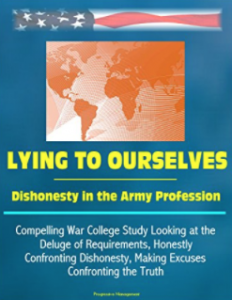 The Ranger Handbook 1992 edition– Timing made this book my top choice, easily. I read this manual as a junior Marine. It covers the basics of patrolling and a number of other useful yet fundamental every professional soldier should know. At that time it taught me what to do on patrol. I read this book again as a 3-year Sgt. My experiences at that point gave me the context to analyze how brilliant the basics it conveyed really were. I was evaluating a unit with a contractor from Silverback Seven who had a copy in his ruck. We had some downtime for the unit to arrive at its ORP because they had gotten lost en route. After chewing the fat a moment with these great mentors, one guy pulled it out and offered it up to read while we waited. The unit took longer than expected to show up. I read some before they arrived and became engrossed. Watched them executed their movement to, actions on and retrograde from the objective and realized just how much they and so many units I’d evaluated would have benefited from just conducting the basics properly. I radioed myself out to range control and spent the rest of the daylight and a good portion of the night reading alone in the middle of the Sierras and analyzing the basics from this new lens. I read it several times on loop after that until I had actually memorized huge portions of chapters III, IV, and V. Once every six months after I read it to maintain a level in proficiency that proved devastatingly effective in many situations after that.
The Ranger Handbook 1992 edition– Timing made this book my top choice, easily. I read this manual as a junior Marine. It covers the basics of patrolling and a number of other useful yet fundamental every professional soldier should know. At that time it taught me what to do on patrol. I read this book again as a 3-year Sgt. My experiences at that point gave me the context to analyze how brilliant the basics it conveyed really were. I was evaluating a unit with a contractor from Silverback Seven who had a copy in his ruck. We had some downtime for the unit to arrive at its ORP because they had gotten lost en route. After chewing the fat a moment with these great mentors, one guy pulled it out and offered it up to read while we waited. The unit took longer than expected to show up. I read some before they arrived and became engrossed. Watched them executed their movement to, actions on and retrograde from the objective and realized just how much they and so many units I’d evaluated would have benefited from just conducting the basics properly. I radioed myself out to range control and spent the rest of the daylight and a good portion of the night reading alone in the middle of the Sierras and analyzing the basics from this new lens. I read it several times on loop after that until I had actually memorized huge portions of chapters III, IV, and V. Once every six months after I read it to maintain a level in proficiency that proved devastatingly effective in many situations after that.
Lying to ourselves: Dishonesty in the Army Profession by Leonard Wong and Stephen Gerras– An honest discourse on the problems that plague our services. It openly addresses task saturation, how service members tap-dance around the truths, knowingly accept untruths, and how we’ve done ourselves a disservice. While discussing this with peers is helpful, nothing beats reading what I know to be true on a taboo subject that undermines the foundations of my profession from people I’ve never met.
Bravo Two Zero by Andy McNabb– I’ve read a few books since that would fit well into this category, but stories about guys in the field always gets me inspired to try harder. Any well-written book that covers mission prep, execution, and fallout from skilled individuals is something any 03 gets excited about. Always. It’s not about the story, it’s that I like to see how top-tier professionals discuss situations and handle them as a measuring stick for my own actions. Reading books like this is also one of the cheapest/easiest ways you can expand your decision-making arsenal on your own.
Will Fuller, US Army Officer
Personal books
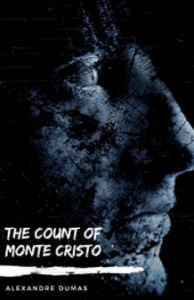 The Bible. If books and stories are human kind’s way of conveying wisdom or better living, then the most impactful and enduring of them must necessarily rise to the top. How do we overcome weakness and fallibility? How do we maximize our potential for goodness and minimize our potential for malevolence? The Bible has an answer. Regardless of your perspective on the metaphysical and faith (though I do believe that if one actually understands the test it is nigh impossible to walk away without a perspective on faith) The Bible is full of ancient wisdom applicable to us all.
The Bible. If books and stories are human kind’s way of conveying wisdom or better living, then the most impactful and enduring of them must necessarily rise to the top. How do we overcome weakness and fallibility? How do we maximize our potential for goodness and minimize our potential for malevolence? The Bible has an answer. Regardless of your perspective on the metaphysical and faith (though I do believe that if one actually understands the test it is nigh impossible to walk away without a perspective on faith) The Bible is full of ancient wisdom applicable to us all.
The Count of Monte Cristo. Yes, I am stealing from Danny. Sorry. But this has been my favorite book since I was in high school. Ive read several versions several different times, and I love the movie starring Jim Kaviezel. Fictions give us archetypes and lenses with which to better understand and frame our world. This story is about a good man, put in awful circumstances through fate and his own naivety, who looses faith, but refuses to accept his fate. It is satisfying to see him redeemed, and watch his growth. It is about perseverance, redemption, and good fighting evil. I love the character of Edmond Dantes. And it is engaging and well written. It grants wonderful perspective to the reader.
This is a Toss-up for me between a book I am currently reading: “12 Rules for Life: an Antidote to Chaos,” and “Endurance,” the story of Sir Ernest Shackleton. The former is by a professor I particularly respect, whose dizzying intellect breaks down human nature into understandable stories and science, while laying out WHY we ought to live properly. The latter is the true story of one of the hardest men and best leaders in recent memory, who refused to acquiesce to nature’s deadly touch, and through leadership and force of will brought all of his subordinates home alive against all odds. Again, offers wonderful perspective.
Professional Books
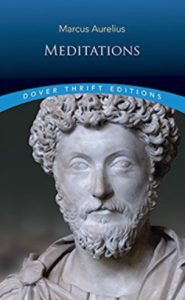 Transforming Command. This book, by Israeli scholar Eitan Shamir, examines the origins and interpretations of the military concept of ‘mission command.’ It contrasts how three different armies, The U.S., British, and Israeli armies, understand, prioritize, and implement this concept in their fighting forces. It is a wonderful explanation of the genius of the original Prussian concept of Aufragstaktik, and how it is implemented today. I drew great leadership and management lessons from his descriptions and case studies that I apply in all leadership positions I am in. At a tactical level, the biggest take-away — for me — is that trust is a leader’s greatest currency. Without interpersonal and intra-organizational trust, we cannot maximize our collective utility or efforts.
Transforming Command. This book, by Israeli scholar Eitan Shamir, examines the origins and interpretations of the military concept of ‘mission command.’ It contrasts how three different armies, The U.S., British, and Israeli armies, understand, prioritize, and implement this concept in their fighting forces. It is a wonderful explanation of the genius of the original Prussian concept of Aufragstaktik, and how it is implemented today. I drew great leadership and management lessons from his descriptions and case studies that I apply in all leadership positions I am in. At a tactical level, the biggest take-away — for me — is that trust is a leader’s greatest currency. Without interpersonal and intra-organizational trust, we cannot maximize our collective utility or efforts.
Meditations. Marcus Aurelius, in the last years of his life, wrote his thoughts and musings in this book. A man who led an empire, dealt with maximal personal grief, put down insurgencies, and maneuvered in politics, masterfully did so with an underlying stoic philosophy. I have great respect and admiration for the stoics, and try my best to emulate their principles. Marcus Aurelius was one of the greatest Stoics, and his musings and lessons serve to guide our thoughts and actions. Alexander the Great carried “Meditations” with him during all of his campaigns. There are innumerable lessons, personal and professional, to be drawn from its pages.
Leadership. A professor (Dr. Samet) at my alma mater — where I am heading to teach in a few short months — wrote a book on leadership in which she took the most relevant clips of great and classic literature from across the ages and compiled them into one book. With excerpts from Milton, to Sun Tzu, to Thucydides, to Abraham Lincoln, she collected the thoughts and writings of great leaders and thinkers and philosophers and categorized them in intuitive and digestible portions. The stories are relevant to anyone on whom responsibility and power are thrust.
Ty Selfridge, Full Time SWAT
Personal books
 Cold Mountain (Charles Frazier) – No, not the movie… the book. It’s full of incredible imagery and storytelling. Guns / war / love / survival / tragedy.
Cold Mountain (Charles Frazier) – No, not the movie… the book. It’s full of incredible imagery and storytelling. Guns / war / love / survival / tragedy.
Lord of the Rings (J.R.R. Tolkien) – No, not the movies… the original trilogy. The books are massive and terrifying. A world of wonder and incredibleness live in these tomes.
My Side of the Mountain (Jean Craighead George) – I read this book as a boy, and found a used copy for $2 a few weeks ago. So I’m reading it again. A life of wild food, a trained falcon, and freedom from the bullshit of a “normal” life. It made me grateful to live in the Cascade Mountains. I wish I was Sam Gribley
Professional Books
 The Gates of Fire (Steven Pressfield) – This is my favorite book of all time. I’ve read it several times and have several passages underlined. The most influential thing about the book are the lessons on leadership, fraternity, and love. It changed my perception on what being a true leader looks like. In addition, it heightened the standards I set for myself as a soldier, father, and husband.
The Gates of Fire (Steven Pressfield) – This is my favorite book of all time. I’ve read it several times and have several passages underlined. The most influential thing about the book are the lessons on leadership, fraternity, and love. It changed my perception on what being a true leader looks like. In addition, it heightened the standards I set for myself as a soldier, father, and husband.
No Country for Old Men (Cormac McCarthy) – No, not the movie… the book. The most influential thing about this book is the fact that no matter how prepared you think you are – there is always someone better than you (i.e. Anton Chigurh). That lends itself to humility, integrity, and the unquenchable desire to never quit.
On Combat (Dave Grossman) – This book opened my eyes to the science and psychology of my profession. This led me to further training, reading & research from places like the Force Science Institute and the Direct Action Resource Center.
Peyton Holtz, US Army Officer
Personal books
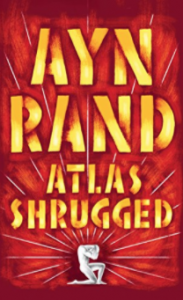 Atlas Shrugged by Ayn Rand. I think that Dagney Taggart may represent the Quest Professional best of any character I have ever seen. Ayn Rand was prophetic in the 1960s; who could have known how true a picture she was painting of what the nation would become?
Atlas Shrugged by Ayn Rand. I think that Dagney Taggart may represent the Quest Professional best of any character I have ever seen. Ayn Rand was prophetic in the 1960s; who could have known how true a picture she was painting of what the nation would become?
A Land Remembered by Patrick Smith. This is historical fiction. Great book that reminds you that simplicity and hard work are the keys to success. This one will also make you reconsider your “needs” regularly. As we have “progressed,” we have become a weak people.
Folks This Aint Normal by Joel Salatin. I actually read this one week after the last Scrum based on the recommendation from Jim. Joel Salatin is a vanguard for the sustainable/regenerative food movement, but more importably his ideas should challenge us to look backwards in many cases to find a better way to live in the future.
Professional Books
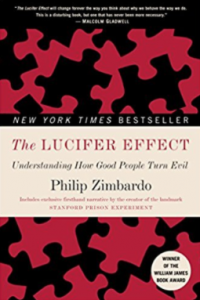 Once An Eagle by Anton Myrer If we agree that we all ultimately reason by analogy, then we ought to load up on analogies. This book provides a plethora of analogies that, even though fiction, can prove useful throughout at least half of a career of leading humans in garrison and combat.
Once An Eagle by Anton Myrer If we agree that we all ultimately reason by analogy, then we ought to load up on analogies. This book provides a plethora of analogies that, even though fiction, can prove useful throughout at least half of a career of leading humans in garrison and combat.
The Lucifer Effect: Understanding How Good People Turn Evil by Philip Zambardo This book showed my how some Stanford college kids could turn into abusive criminals in a matter of hours when identities aren’t carefully managed. If we strip a people of their identity, we run the risk of them assuming something dangerous in that vacuum. Powerful implications for training a cadre of young NCOs to take care of their Soldiers in garrison and to treat enemy humans well in combat.
Article: “Twitching” by Mark Twight. This is only an article but has been the most powerful and consistent touchstone work for the last 10 years of my life. Here are a few of my favorite lines: “If you cannot grasp the consciousness-altering experience that real mastery of these disciplines proposes, of what value is your participation?” “Give up this renaissance man, dilettante bullshit of doing a lot of different things (and none of them very well by real standards).” “Once you’re committed the truth will come out.”
Roxanne Vogel, Sports Nutritionist
Personal Books
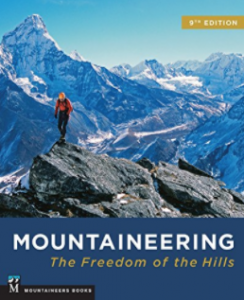 The Alchemist by Paulo Coelho: fictional novel that highlights the role of following your own personal legend and being fearless in your pursuit. It made me want to live more fully and embrace the unknown even though it can be scary to jump when you don’t exactly know where you’ll land.
The Alchemist by Paulo Coelho: fictional novel that highlights the role of following your own personal legend and being fearless in your pursuit. It made me want to live more fully and embrace the unknown even though it can be scary to jump when you don’t exactly know where you’ll land.
Mountaineering: The Freedom of the Hills: ultimate guide for all things mountaineering related. I am a nerd and will just read sections from it at night for fun. I like learning how to tie different knots, build anchors, whatever. Useful and practical.
100 Years of Solitude by Gabriel Garcia Marquez: Fictional novel that tells the story of a family over the course of multiple generations in Latin America. Marquez is one of my favorite authors…his writing is poignant and it describes the human condition with all its great complexity. This book is one of the few that I read purely for enjoyment in the past several years. That’s got to count for something.
Professional Books
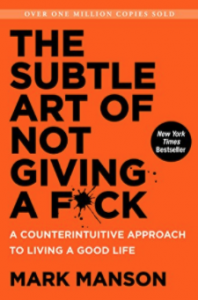 Presence by Amy Cuddy: talks about how we can become better speakers, mentors, humans in general by learning to use our physiology to influence our behavior. Things like taking a more powerful stance, changing your posture, etc can shift how you feel about yourself. I practice some of these techniques before presentations, interviews, whenever I feel intimidated by a situation…tends to help.
Presence by Amy Cuddy: talks about how we can become better speakers, mentors, humans in general by learning to use our physiology to influence our behavior. Things like taking a more powerful stance, changing your posture, etc can shift how you feel about yourself. I practice some of these techniques before presentations, interviews, whenever I feel intimidated by a situation…tends to help.
The Subtle Art of Not Giving a F*ck by Mark Manson: talks about letting go of the little things that we tend to get bogged down with so we can focus on more important things in life. The point is to stop giving so may “f’s” about stupid stuff. This has been huge for me. I’m actively working on only focusing energy on the few things in life that really matter. It’s also a pretty hilarious book at times.
Blink by Malcolm Gladwell: talks about the power of decision making based on little information, how we make snap decisions based on intuition and instinct. Made me realize the process of knowing without understanding why is a real psychological phenomenon rooted in past experience and bias, but the decisions that come as a result are justified on some level. Made me feel more comfortable going with my gut instincts…you may not know why you feel inclined to act a certain way but you subconsciously have pretty legitimate reasons.
Ryan Phillips, Sheriff’s Deputy
Personal Books
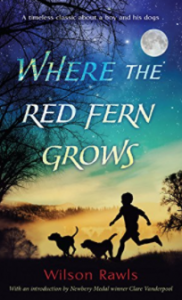 Blink, by Malcom Galdwell – Just a fun read that I found fascinating and I love to learn more about how peoples minds work, and why.
Blink, by Malcom Galdwell – Just a fun read that I found fascinating and I love to learn more about how peoples minds work, and why.
Freakonomics, by Steven Levitt and Stephen Dubner – This book breaks down all sorts of things, from using the rise of the KKK to explain the power of hoarded information, to asking the questions “whats more dangerous a gun or a swimming pool” and then providing empirical evidence to support the answer. It talks about Roe v. Wade and its impact on violent crime and other just very interesting topics discussed and evaluated in a way that I never would have thought of. All backed by statistics that make their arguments nearly impossible to argue with.
Where the red fern grows, by Wilson Rawls – This book just depicted my childhood. A kid who loved nothing more than to be outdoors with his dogs, and who would stop at nothing to do what he loved and was loyal to his dogs. It had a lot of good life lessons throughout the book. I still read it pry once a year.
Professional Books
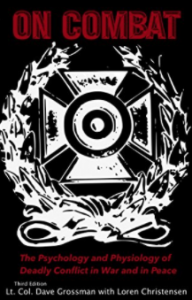 On Combat, by Lt. Col. Dave Grossman – This book goes into great deal on the physiological and psychological aspects of combat and how it all acts and reacts with the human body and mind. It gave me a lot to thing about as my training developed in my L/E career and as I progressed through SWAT and some violent fugitive units. Learning how to deal with that type of stress, how to process certain thoughts and ideas you get after doing some of these “Tasks” and knowing that the thoughts are normal and don’t make us sociopaths.
On Combat, by Lt. Col. Dave Grossman – This book goes into great deal on the physiological and psychological aspects of combat and how it all acts and reacts with the human body and mind. It gave me a lot to thing about as my training developed in my L/E career and as I progressed through SWAT and some violent fugitive units. Learning how to deal with that type of stress, how to process certain thoughts and ideas you get after doing some of these “Tasks” and knowing that the thoughts are normal and don’t make us sociopaths.
Blink, by Malcom Galdwell – This book is on my personal list too. I love this author and have read all his books. This one just really opened my eyes to the way people think, consciously and unconsciously. It helped to explain how people can make split second decision with apparently little to no information, but in all actuality, have already gone through a lengthy thought process to come to their decisions.
SWAT Operations and Critical Incidents: Why people die, by Stuart Meyers – This book was very interesting and provided some great insight for my progression in SWAT. It is basically a critical incident debrief of multiple incidents from around the world and how the mission broke down due to various factors. From administration fails to operator fails, lack or mis-communication, or people trying to be the boss when they shouldn’t be on scene at all. It lays out a good foundation of things to try and first recognize and then avoid in your own missions in order to achieve the missions goals.
Rob O’Neill, US Marine Corps Officer
Personal Books
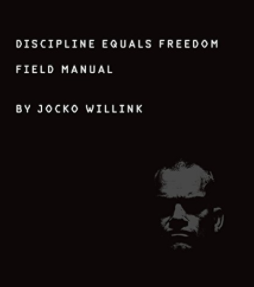 CHASING EXCELLENCE by Ben Bergeron: I appreciate the training philosophy and necessary attitude to succeed at the highest levels of sport (in this case, the CrossFit games). I find much of it applicable to my own physical training, but also applies to my training and leadership philosophy towards my Marines.
CHASING EXCELLENCE by Ben Bergeron: I appreciate the training philosophy and necessary attitude to succeed at the highest levels of sport (in this case, the CrossFit games). I find much of it applicable to my own physical training, but also applies to my training and leadership philosophy towards my Marines.
DISCIPLINE EQUALS FREEDOM FIELD MANUAL by Jocko Willink: I found the bluntness and philosophy Jocko presents in this book to be a brutally honest approach to training and “mental toughness.” Jocko is big on putting in the work regardless of circumstances and late nights: something that I have really taken to heart and applies over the past months as I try to balance work, family, and preparing for BRC.
CONSCIOUS COACHING by Brett Bartholomew. In this book, Bartholomew talks a lot about creating buy-in, learning effective communication, and using social intelligence to create outstanding athletes. I find everything he talks about to be applicable for personal communication to anyone, but also training Marines.
Professional Books
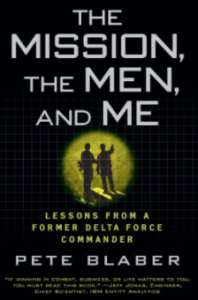 THE MISSION, THE MEN, AND ME by Pete Blaber. I really like this book and it’s take on simple yet profound leadership principles. I read the book during a difficult and frustrating period as a platoon commander and it spoke volumes to me. I really appreciated Blaber’s principles (namely listening to the guy on the ground and it’s not reality until it’s shared) and it was extremely helpful during this difficult time.
THE MISSION, THE MEN, AND ME by Pete Blaber. I really like this book and it’s take on simple yet profound leadership principles. I read the book during a difficult and frustrating period as a platoon commander and it spoke volumes to me. I really appreciated Blaber’s principles (namely listening to the guy on the ground and it’s not reality until it’s shared) and it was extremely helpful during this difficult time.
SCALES ON WAR by General Bob Scales and OUT OF THE MOUNTAINS by David Kilcullen. Scales and Kilcullen’s books have been the foundation of my military thinking, my beliefs in the future of combat, and how we need to train Marines. I truly believe we are not as good as we could be, and that the fight is coming in megaslums against competent hybrid threats.
Jason Lapadula, US Marine Corps Officer
Personal Books
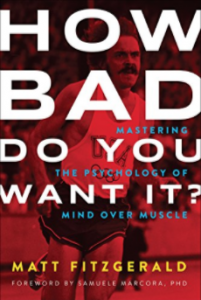 Thinking Fast and Slow by Daniel Kahneman: Arguably the father of behavioral economics and modern decision theory. I got into this book on my first deployment and almost every page made me rethink every risk decision I’ve ever made. A must read for anyone who gets paid to make decisions – especially when those decisions could be life and death.
Thinking Fast and Slow by Daniel Kahneman: Arguably the father of behavioral economics and modern decision theory. I got into this book on my first deployment and almost every page made me rethink every risk decision I’ve ever made. A must read for anyone who gets paid to make decisions – especially when those decisions could be life and death.
How Bad Do You Want It? by Matt Fitzgerald: Unlike most of the self-motivation BS that seems to sell well to the businessman/military decision maker, Matt Fitzgerald follows up unbelievable anecdotes with real research on endurance athletes. Good insight into the mental side of sports performance, and I’d argue high performance in general.
The Design of Everyday Things, by Dan Norman: Most people I’ve met seem to perpetuate the blame game (its higher headquarter’s fault, the boss is f’ed up, etc.). This book makes you take a look a process and how to enact human centered design. The problem in most cases is an error in design, and creating better processes enables better execution.
Professional Books
Matterhorn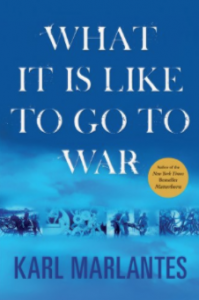 & What It’s Like to Go to War, by Karl Marlantes: Both books are good accounts of the human factors in war (rain, jungle rot, racism, people/power dynamics). If anything, Matterhorn will make you happy you never had to fight in the jungles of Vietnam. What It’s Like to Go to War is the author’s memoir of returning from war, and is a lesson on how to treat our combat veterans (it’s like Tribe by Sebastian Junger but better).
& What It’s Like to Go to War, by Karl Marlantes: Both books are good accounts of the human factors in war (rain, jungle rot, racism, people/power dynamics). If anything, Matterhorn will make you happy you never had to fight in the jungles of Vietnam. What It’s Like to Go to War is the author’s memoir of returning from war, and is a lesson on how to treat our combat veterans (it’s like Tribe by Sebastian Junger but better).
The Soldier’s Load and the Mobility of a Nation, by SLA Marshall: How light infantry is supposed to be conducted, and the importance of logistics. A common saying in the Marines is, “good officers think tactics, great officers think logistics,” – this book makes you understand why. Also good for junior warriors to understand why they need fitness for long rucking distances.
The Passion of Command by Col BP McCoy: Straightforward lessons on combat leadership and training for combat. Leaders need to pursue personal mastery and treat themselves as professionals in every aspect if they are to lead their subordinates in the application of violence.
